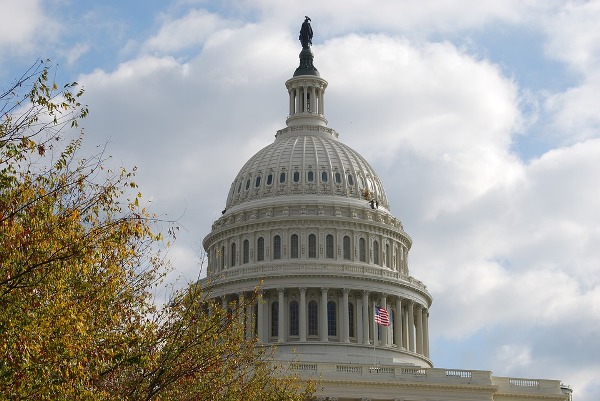
The original goal of the Comprehensive Environmental Response, Compensation, and Liability Act (CERCLA) was to clean up highly contaminated dump sites. Its provisions weren’t meant to deal originally with your everyday contaminated parcel that is the subject of most commercial property transactions. To address your everyday transactions, Congress passed brownfields amendments in 2002, and that’s where the changes in law we discuss here most often apply.
But Superfund liability as an “owner,” or as an “operator” (i.e., a tenant), applies even with these everyday, sometimes mildly contaminated sites. No one wants to foot the bill for cleaning up even modest contamination, which can easily run into the hundreds of thousands of dollars. So prospective investors and developers, and sometimes even prospective lessees, conduct Phase I (and sometimes Phase II) Environmental Site Assessments (ESAs) to evaluate the condition of a property before purchasing or leasing it.
We environmental lawyers help clients go through this environmental due diligence process for several reasons, but since about 2002, it’s key to helping clients attain an exemption from Superfund liability known as bona fide prospective purchaser (BFPP) protection.
Before there was a BFPP provision, beginning in 2002, CERCLA provided a defense to be raised in litigation (as opposed to an exemption to liability to be used generally) for those who purchased a property that was contaminated, called the “innocent landowner” defense in its 1986 amendments. This defense would be available if the purchaser conducted a Phase I ESA, which incorporates all appropriate inquiries (AAI) into past uses of the property, before purchasing the property and found no contamination. Once on notice of contamination, you either terminated your contract prior to closing (to avoid acquiring liability), or closed but acquired liability as owner of a contaminated property. Many real estate deals terminated as a result.
The BFPP exemption, on the other hand, shields purchasers from Superfund liability by allowing them to purchase property even though they learn of hazardous substances on the property during the ESA process. Learn more about the importance of BFPP protection from our website.
The benefits of the BFPP exemption are very clear, but until now its application was expressly limited to prospective owners (at least for the first few years of the BFPP provision). Tenants often acquired “operator” liability under CERCLA if they entered into a lease with knowledge of the contaminated condition of the property, subject to negotiation with U.S. Environmental Protection Agency (EPA). To address this issue, in December 2012, the EPA issued a new guidance, entitled “Revised Enforcement Guidance Regarding the Treatment of Tenants under the CERCLA Bona Fide Prospective Purchaser Provision” which broadened the BFPP exemption to include tenants. This EPA policy change was somewhat narrow and was not, in any event, codified into law. As a result, tenants were provided no assurances against CERCLA liability protection…until recently.
Buried deep in the 800-page Consolidated Appropriations Act of 2018, Congress decided that tenants can now qualify for the BFPP exemption to CERCLA liability regardless of the owner’s status as a BFPP. This change is consistent with but even broader than the current EPA enforcement discretion guidance noted above. Tenants can now assert the BFPP exemption from liability if they (a) lease the property after Jan. 11, 2002, (b) completed a Phase I ESA prior to the start of the lease, and (c) then comply with the additional criteria of the BFPP exemption after lease commencement (such as preventing occupants to exposure, and cooperating with cleanup work). It does not matter whether the underlying landowner ever qualified for BFPP status, or qualified but lost it, so long as the tenant does so.
The tenant can also ride on the proverbial coattails of an owner who qualified for and continues to qualify for BFPP status, even without doing its own Phase I ESA – in theory – but since the tenant won’t know if the owner’s BFPP status is secure, it would not be wise for such a tenant to forego getting its own Phase I ESA prepared prior to lease commencement.
Why is this change helpful?
This new provision in CERCLA broadens, as well as codifies into law, the BFPP liability protection (exemption) previously afforded to lessees under EPA’s policy. Courts, of course, treat administrative agency policy as persuasive authority but not controlling law. Now that CERCLA provides that tenants don’t have to rely on their landlords to have acquired BFPP status (or once having acquired it, to maintain its requirements), parties and courts will have greater certainty if the issue ever arises in litigation.
This change to the law serves to further incentivize non-residential tenants to perform a Phase I ESA before leasing property (beyond just for general due diligence purposes) to ensure they meet the baseline AAI requirements, and learn how to comply with the appropriate care requirements, in order to formally qualify for the BFPP exemption to Superfund liability.
Call the attorneys of Periconi, LLC at (212) 213-5500 for legal advice in navigating CERCLA, structuring purchase agreements to include ESAs and other matters related to establishing the BFPP exemption from Superfund liability.

